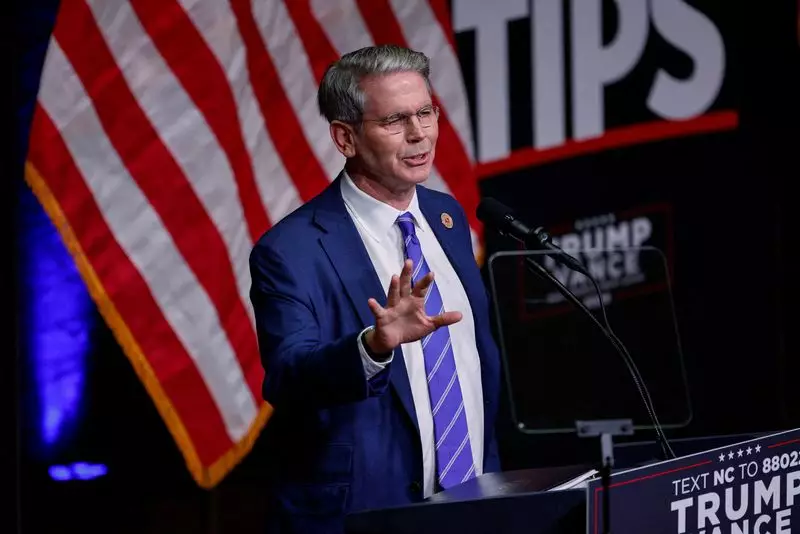In an important development for both the financial sector and the broader U.S. economy, President-elect Donald Trump has nominated Scott Bessent as the new U.S. Treasury Secretary. This decision follows a period of speculation and competition among several high-profile candidates, all of whom were under significant scrutiny given the immense responsibilities that accompany this influential position. Bessent’s selection has implications for economic policy, regulatory frameworks, and the global trade landscape.
The U.S. Treasury Secretary is often considered the chief economic officer of the nation. This role entails overseeing tax collection, government spending, debt management, and financial regulations. The appointee will also direct U.S. sanctions policy, liaise with international financial institutions such as the International Monetary Fund (IMF) and the World Bank, and manage foreign investment screenings. Given the current economic climate, which includes rising national deficits and a turbulent global market, this position holds even greater significance.
Bessent’s nomination underscores the importance of economic expertise in a time when the U.S. economy is facing multi-faceted challenges. He will be responsible for navigating complex fiscal policies while ensuring market stability—all while balancing the competing demands of stakeholders both domestically and globally.
Scott Bessent is not new to the world of finance; his career spans notable roles involving macro investment strategies. Having worked alongside financial luminaries such as George Soros and Jim Chanos, he brings a wealth of experience in investment and market analysis. This background not only positions him well for navigating the intricacies of financial management but also fosters confidence among Wall Street insiders.
Bessent’s prior advocacy for tax reforms, deregulation, and incentivizing economic growth aligns closely with Trump’s agenda. His understanding of market dynamics suggests that he may advocate for policies that prioritize market expansion while also attempting to appease concerns regarding trade tariffs that could hamper economic performance. Analysts speculate that his approach may ultimately serve to alleviate fears surrounding extreme tariff implementations.
The impact of Bessent’s nomination reverberates beyond the walls of Washington, D.C. Wall Street and investors view the Treasury Secretary’s role as pivotal, especially in shaping expectations surrounding fiscal policies. Bessent’s previous commentaries reflect a belief in economic rejuvenation following Trump’s election—a belief that has been echoed recently in his public statements.
With upcoming tax cuts and federal spending plans under early scrutiny, Bessent faces a daunting task. The anticipated federal deficits could soar, and managing this debt will require adept financial strategies. Bessent’s assertion that economic growth could be stimulated by current policies is underlined by his historical assessments of market reactions to Trump’s leadership, which he views as optimistic for investors.
In an increasingly interconnected world, the Treasury Secretary’s role extends to international relations and economic stability. Bessent will be confronted with critical global issues, such as the U.S.’s financial commitment to Ukraine amid ongoing geopolitical tensions with Russia. Previously, under Janet Yellen’s leadership, the Treasury engaged substantially with international partners to provide economic support.
The contrasting priorities between Bessent and Yellen suggest a potential shift in U.S. foreign policy and engagement. There are apprehensions regarding how Trump’s inclination to withdraw support from Ukraine aligns with Bessent’s ability to enhance U.S. economic standing abroad.
Bessent’s term as Treasury Secretary is poised to be marked by substantial challenges, including managing the burgeoning U.S. debt and responding to international pressures. While he possesses the knowledge and experience necessary for fiscal management, the effectiveness of his policies will largely depend on the collaboration within Trump’s broader administration.
The evolving landscape of economic policy will undoubtedly test Bessent’s strategies. As he steps into this critical role, his appointments, proposed reforms, and interactions with the Federal Reserve will shape the economic trajectory of the United States. Stakeholders—both in policy and business—will be watching closely to see how Bessent navigates these complexities and leverages his extensive financial background to promote growth and stability.
Scott Bessent’s appointment as U.S. Treasury Secretary is not merely about choosing a candidate with a strong financial pedigree; it’s about aligning economic policy with the realities of global dynamics and domestic challenges. The coming months will reveal the efficacy of his strategies in promoting a prosperous and sustainable economic future for the nation.

